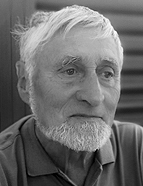

The composition of noble and church estates, along with allodial land, is well documented, including its agricultural uses, cultivation methods, and exploitation. However, Durand brings a fresh perspective by examining the genesis of village communities through the lens of the family unit. He highlights how these communities were both shaped by and ultimately fragmented by manorial powers, as well as exploring the social hierarchy and lifestyles of the agricultural workers. His in-depth analysis of the solidarity within peasant communities— anchored in agrarian, judicial, fiscal, and religious unity— left a lasting impact on Portuguese historiography. His work influenced numerous future studies focused on the associative, communal, parish-based, and social spirit within rural communities. Durand also investigated the broader context of feudalism and manorial structures in Portugal, often engaging with the research of José Mattoso, and placed this within a comparative framework with the broader contexts of the Iberian Peninsula and France. His studies extended to the complex organisation of power in fortified border towns. Portuguese records led him to study anthroponymy and family structures among men during the Middle Ages, shedding light on this historical period. In a bid to dispel the perception of Portugal as a "blank rectangle" on the map of Iberian history in many studies, Durand introduced the French-speaking world to Portugal's rich past with his História de Portugal [History of Portugal], published in 1992. With a keen sensitivity to the historical evolution of Portugal, Durand emphasises the Roman, Visigothic, and Islamic civilisational influences, tracing Portuguese history through the medieval and expansionist periods, the Enlightenment and Regeneration eras, up to the Republic. He considers the impact of the Estado Novo, the advent of democracy, and finally, Portugal’s "European hour."
As a medievalist, Robert Durand brought a distinctive perspective to Portuguese rural history, shaped by the French school, highlighting manorial structures and village communities during Portugal’s formation. His work left a lasting impact on Portuguese historiography, especially as rural studies gained traction in the 1980s.
This work is financed by national funds through FCT - Foundation for Science and Technology, I.P, in the scope of the projects UIDB/04311/2020 and UIDP/04311/2020.
